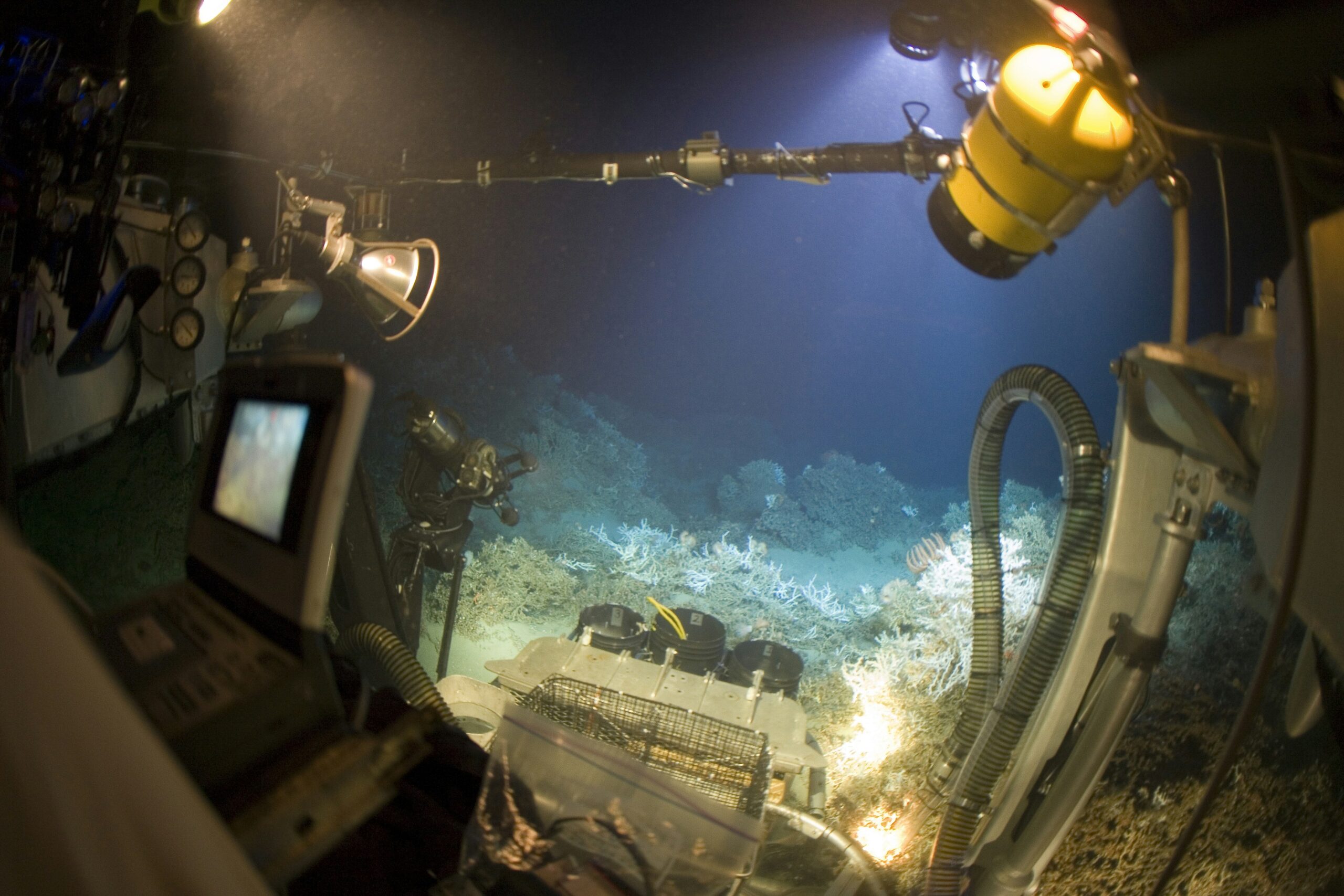Pacific activists protest exploration vessel as geopolitical rivalry intensifies over critical mineral resources.
Photo by NOAA
The United States and China are engaged in an intensifying competition for access to deep-sea mineral resources in the Cook Islands’ exclusive economic zone, raising concerns amongst environmental campaigners and indigenous communities about the ecological and geopolitical implications of seabed mining in the Pacific.
The US State Department announced in August 2025 that the two nations had commenced discussions on the exploration and “responsible development” of the Cook Islands’ seabed. The exclusive economic zone holds an estimated 12 billion wet tonnes of polymetallic nodules containing cobalt, nickel, copper, manganese and rare earth elements – minerals considered “critical” by the US government.
President Donald Trump stated in an April executive order: “The United States has a core national security and economic interest in maintaining leadership in deep sea science and technology and seabed mineral resources.”
However, the US initiative follows China’s February 2025 signing of a five-year memorandum of understanding with the Cook Islands Seabed Minerals Authority on enhanced cooperation in seabed mineral research. China currently holds five International Seabed Authority contracts to explore for deep-sea minerals – the most of any country.
On 21 October 2025, Cook Islands activists confronted the US-funded exploration vessel Nautilus as it returned to Rarotonga port following a three-week research expedition. Louisa Castledine, spokesperson for the Ocean Ancestors collective, stated: “Right now, global superpowers like the US are vying for control of deep sea minerals throughout the Pacific. Seabed mining will lead to the destruction of our home environments and put our Indigenous rights, cultural ways of living, and wellbeing at risk.”
More than 940 marine science and policy experts from over 70 countries have voiced concerns about deep-sea mining, calling for a precautionary pause. Forty countries have joined the call for a pause or moratorium, including Pacific states Palau, Samoa, Vanuatu and Tuvalu.
Deep-sea mining remains highly controversial within the Pacific. Supporters including Nauru, the Cook Islands, Kiribati and Tonga push to proceed, whilst others such as Fiji, Palau and Vanuatu call for a moratorium until environmental impacts are better understood.
The US-Cook Islands partnership has created regional tensions. New Zealand suspended millions in budget support in June after the Cook Islands signed the China deals without consultation.
Seabed mining has not yet commenced at commercial scale anywhere globally. Scientists warn that deep-sea mining could cause irreversible damage to ecosystems amongst the least understood biomes on Earth.
